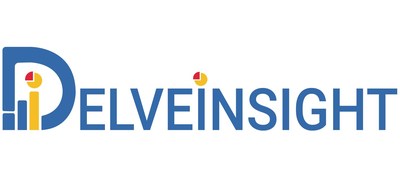Kidney Transplant Rejection Market to Observe Growth at a CAGR of 4.9% During the Forecast Period (2024-2034) | DelveInsight
The kidney transplant rejection prophylaxis market is projected to experience steady growth, driven by the introduction of innovative therapies such as MDR-101, tegoprubart (AT-1501), riliprubart (BIVV020, SAR445088), and TRK-001 (Treg). Additionally, the growing number of kidney transplants, fueled by the increasing prevalence of end-stage renal disease (ESRD), further supports the market's expansion.
LAS VEGAS, Feb. 12, 2025 /PRNewswire/ -- DelveInsight's Kidney Transplant Rejection Market Insights report includes a comprehensive understanding of current treatment practices, kidney transplant rejection emerging drugs, market share of individual therapies, and current and forecasted market size from 2020 to 2034, segmented into 7MM [the United States, the EU4 (Germany, France, Italy, and Spain) and the United Kingdom, and Japan].

Key Takeaways from the Kidney Transplant Rejection Market Report
- According to DelveInsight's analysis, the market size for kidney transplant rejection was found to be approximately USD 4 billion in the 7MM in 2023.
- Among the 7MM, the US contributed the largest market share of the total kidney transplant rejection market size and will continue to experience a steep rise in the market size throughout the forecast period.
- Estimates suggest that MDR-101 is expected to generate USD 332.8 million by 2034 in the 7MM.
- In 2023, there were an estimated 44K total incident cases of kidney transplants across the 7MM, with the number expected to rise by 2034.
- Leading kidney transplant rejection companies developing emerging therapies, such as Medeor Therapeutics, Eledon Pharmaceuticals, Sanofi, TRACT Therapeutics, Sangamo Therapeutics, Asahi Kasei (Veloxis Pharmaceuticals), and others are developing novel kidney transplant rejection drugs that can be available in the kidney transplant rejection market in the coming years.
- The promising kidney transplant rejection therapies in the pipeline include MDR-101, Tegoprubart (AT-1501), Riliprubart (BIVV020, SAR445088), TRK-001 (Tregs), TX200, VEL-101, and others.
- A novel therapeutic approach utilizing Regulatory T cells (Tregs) is being investigated in clinical trials to prevent kidney transplant rejection. Two prominent examples are TRK-001 (Phase II) and TX200 (Phase I/II). TRK-001 demonstrated promising results in Phase I and is now undergoing Phase II trials. Additionally, TX200 has been well tolerated in all patients dosed as of November 2024.
Discover which therapies are expected to grab the major kidney transplant rejection market share @ Kidney Transplant Rejection Market Report
Kidney Transplant Rejection Overview
Kidney transplant rejection occurs when the recipient's immune system recognizes the donor kidney as foreign and mounts an attack against it. This immune response can be triggered by several factors, including differences in human leukocyte antigens (HLAs), inadequate immunosuppressive therapy, or infections that stimulate immune activation. There are primarily two types of rejection: acute, which may develop days to months post-transplant and is often mediated by T cells and antibodies, and chronic, which evolves over years and leads to progressive scarring and loss of kidney function.
Common symptoms include a sudden decline in urine output, swelling, fever, and tenderness over the transplant site; however, some patients may be asymptomatic in the early stages. Diagnosis typically involves regular monitoring through blood tests—particularly serum creatinine levels—to assess kidney function, imaging studies like ultrasounds to evaluate blood flow and structure, and often a kidney biopsy to confirm the presence and type of immune-mediated injury. Timely recognition and intervention are crucial to adjust immunosuppressive therapy and preserve the function of the transplanted kidney.
Kidney Transplant Rejection Epidemiology Segmentation
The kidney transplant rejection epidemiology section provides insights into the historical and current kidney transplant rejection patient pool and forecasted trends for the 7MM. It helps recognize the causes of current and forecasted patient trends by exploring numerous studies and views of key opinion leaders.
The kidney transplant rejection market report proffers epidemiological analysis for the study period 2020–2034 in the 7MM segmented into:
- Total Incident Cases of Kidney Transplants
- Total Living Cases of Kidney Transplants
- Type-specific Cases of Kidney Transplant Rejection
Kidney Transplant Rejection Treatment Market
Managing kidney transplant rejection remains a major challenge in post-transplant care, necessitating effective immunosuppressive therapies to prevent rejection and ensure long-term graft survival. Various approved medications play a crucial role in immunosuppression by targeting specific immune pathways.
One such drug is MYHIBBIN (mycophenolate mofetil oral suspension), an oral small molecule approved by the US FDA in 2024. It works by inhibiting inosine monophosphate dehydrogenase (IMPDH), an enzyme essential for purine synthesis and lymphocyte proliferation, making it effective in preventing acute rejection in kidney transplant patients.
Another key therapy is ENVARSUS XR, which received FDA approval in December 2018 for preventing organ rejection in newly transplanted kidney patients. Originally approved in 2015 for conversion from immediate-release tacrolimus, it is now used in over 90% of US transplant centers, addressing a significant unmet need in transplant care.
In the EU, IDEFIRIX (imlifidase), a biologic therapy approved in 2020, has also been granted Orphan Drug Designation (ODD) in the US. It works by cleaving immunoglobulin G (IgG), thereby suppressing the immune response responsible for transplant rejection. Administered intravenously, it is particularly beneficial for kidney transplant recipients with high levels of donor-specific antibodies (DSAs).
Another widely used immunosuppressive therapy is THYMOGLOBULIN (anti-thymocyte globulin [rabbit]), a polyclonal antibody marketed by Sanofi. By depleting T cells, it helps lower the risk of acute rejection. Approved in the US in 2017 and earlier in the EU and Japan, it is primarily used during the induction phase of transplantation and holds Orphan Drug Designation (ODD) in the US for its role in transplant immunosuppression.
To know more about kidney transplant rejection treatment guidelines, visit @ Kidney Transplant Rejection Management
Kidney Transplant Rejection Pipeline Therapies and Key Companies
- MDR-101: Medeor Therapeutics
- Tegoprubart (AT-1501): Eledon Pharmaceuticals
- Riliprubart (BIVV020, SAR445088): Sanofi
- TRK-001 (Tregs): TRACT Therapeutics
- TX200: Sangamo Therapeutics
- VEL-101: Asahi Kasei (Veloxis Pharmaceuticals)
Discover more about kidney transplant rejection drugs in development @ Kidney Transplant Rejection Clinical Trials
Kidney Transplant Rejection Market Dynamics
The kidney transplant rejection market dynamics are expected to change in the coming years. The rising number of kidney transplants worldwide, driven by advancements in surgical techniques and immunosuppressive therapies, is fueling market growth, while the availability of innovative diagnostic tools, such as biomarker-based assays, aids in early rejection detection; additionally, the development of novel biologics and immunosuppressive drugs with improved safety and efficacy, along with non-invasive tools for monitoring drug levels and immune activity, could significantly enhance transplant success rates and prophylaxis strategies.
Furthermore, potential therapies are being investigated for the treatment of kidney transplant rejection, and it is safe to predict that the treatment space will significantly impact the kidney transplant rejection market during the forecast period. Moreover, the anticipated introduction of emerging therapies with improved efficacy and a further improvement in the diagnosis rate are expected to drive the growth of the kidney transplant rejection market in the 7MM.
However several factors may impede the growth of the kidney transplant rejection market. Chronic kidney transplant rejection progresses silently, making early detection difficult and leading to gradual graft damage, while the high cost of immunosuppressive medications and post-transplant care burdens patients and healthcare systems, particularly in resource-limited settings; additionally, the shortage of donor kidneys and lengthy waiting lists may constrain the transplant market, indirectly affecting rejection management and immunosuppressive therapies, while patent expirations of key immunosuppressive drugs could intensify generic competition, eroding branded therapy market share and revenue.
Moreover, kidney transplant rejection treatment poses a significant economic burden and disrupts patients' overall well-being and QOL. Furthermore, the kidney transplant rejection market growth may be offset by failures and discontinuation of emerging therapies, unaffordable pricing, market access and reimbursement issues, and a shortage of healthcare specialists. In addition, the undiagnosed, unreported cases and the unawareness about the disease may also impact the kidney transplant rejection market growth.
Kidney Transplant Rejection Market Report Metrics | Details |
Study Period | 2020–2034 |
Coverage | 7MM [the United States, the EU4 (Germany, France, Italy, and Spain) and the United Kingdom, and Japan]. |
Kidney Transplant Rejection Market CAGR | 4.9 % |
Kidney Transplant Rejection Market Size in 2023 | USD 4 Billion (7MM) |
Key Kidney Transplant Rejection Companies | Medeor Therapeutics, Eledon Pharmaceuticals, Sanofi, TRACT Therapeutics, Sangamo Therapeutics, Asahi Kasei (Veloxis Pharmaceuticals), and others |
Key Pipeline Kidney Transplant Rejection Therapies | MDR-101, Tegoprubart (AT-1501), Riliprubart (BIVV020, SAR445088), TRK-001 (Tregs), TX200, VEL-101, and others |
Scope of the Kidney Transplant Rejection Market Report
- Therapeutic Assessment: Kidney Transplant Rejection current marketed and emerging therapies
- Kidney Transplant Rejection Market Dynamics: Key Market Forecast Assumptions of Emerging Kidney Transplant Rejection Drugs and Market Outlook
- Competitive Intelligence Analysis: SWOT analysis and Market entry strategies
- Unmet Needs, KOL's views, Analyst's views, Kidney Transplant Rejection Market Access and Reimbursement
Download the report to understand which factors are driving kidney transplant rejection market trends @ Kidney Transplant Rejection Market Trends
Table of Contents
1 | Key Insights |
2 | Report Introduction |
3 | Market Overview at a Glance |
3.1 | Market Share (%) Distribution of Kidney Transplant Rejection Prophylaxis by Therapies in the 7MM in 2020 |
3.2 | Market Share (%) Distribution of Kidney Transplant Rejection Prophylaxis by Therapies in the 7MM in 2034 |
4 | Executive Summary |
5 | Key Events |
6 | Disease Background and Overview |
6.1 | Introduction |
6.2 | Types of Kidney Transplant Rejection |
6.3 | Causes and Risk Factors |
6.4 | Sign and Symptoms |
6.5 | Pathophysiology |
6.6 | Biomarkers |
6.7 | Diagnosis |
6.7.1 | Diagnostic Guidelines and Recommendations |
6.8 | Treatment and Management |
6.8.1 | Treatment Algorithm |
6.8.2 | Treatment Guidelines and Recommendations |
7 | Methodology |
8 | Epidemiology and Patient Population |
8.1 | Key Findings |
8.2 | Assumptions and Rationale |
8.2.1 | Total Incident Cases of Kidney Transplants |
8.2.2 | Total Living Cases of Kidney Transplants |
8.2.3 | Type-specific Cases of Kidney Transplant Rejection |
8.3 | Total Incident Cases of Kidney Transplants in the 7MM |
8.4 | The US |
8.4.1 | Total Incident Cases of Kidney Transplants in the US |
8.4.2 | Total Living Cases of Kidney Transplants in the US |
8.4.3 | Type-specific Cases of Kidney Transplant Rejection in the US |
8.5 | EU4 and the UK |
8.5.1 | Total Incident Cases of Kidney Transplants in the EU4 and the UK |
8.5.2 | Total Living Cases of Kidney Transplants in the EU4 and the UK |
8.5.3 | Type-specific Cases of Kidney Transplant Rejection in the EU4 and the UK |
8.6 | Japan |
8.6.1 | Total Incident Cases of Kidney Transplants in Japan |
8.6.2 | Total Living Cases of Kidney Transplants in Japan |
8.6.3 | Type-specific Cases of Kidney Transplant Rejection in Japan |
9 | Patient Journey |
10 | Marketed Drugs |
10.1 | Key Cross Competition |
10.2 | MYHIBBIN (mycophenolate mofetil oral suspension) : Azurity Pharmaceuticals |
10.2.1 | Product Description |
10.2.2 | Product Profile |
10.2.3 | Regulatory Milestone |
10.2.4 | Safety and Efficacy |
10.3 | IDEFIRIX (imlifidase) : Hansa Biopharma |
10.3.1 | Product Description |
10.3.2 | Product Profile |
10.3.3 | Regulatory Milestone |
10.3.4 | Other Developmental Activities |
10.3.5 | Clinical Development |
10.3.6 | Safety and Efficacy |
10.4 | THYMOGLOBULIN (anti-thymocyte globulin [rabbit]) : Sanofi |
10.4.1 | Product Description |
10.4.2 | Product Profile |
10.4.3 | Regulatory Milestone |
10.4.4 | Other Developmental Activities |
10.4.5 | Clinical Development |
10.4.6 | Safety and Efficacy |
10.5 | ENVARSUS XR (tacrolimus extended-release) : Asahi Kasei (Veloxis Pharmaceuticals) |
10.5.1 | Product Description |
10.5.2 | Product Profile |
10.5.3 | Regulatory Milestone |
10.5.4 | Other Developmental Activities |
10.5.5 | Clinical Development |
10.5.6 | Safety and Efficacy |
10.6 | NULOJIX (belatacept) : Bristol Myers Squibb |
10.6.1 | Product Description |
10.6.2 | Product Profile |
10.6.3 | Regulatory Milestone |
10.6.4 | Other Developmental Activities |
10.6.5 | Clinical Development |
10.6.6 | Safety and Efficacy |
10.7 | SIMULECT (basiliximab) : Novartis |
10.7.1 | Product Description |
10.7.2 | Product Profile |
10.7.3 | Regulatory Milestone |
10.7.4 | Other Developmental Activities |
10.7.5 | Safety and Efficacy |
List to be continued in the final report | |
11 | Emerging Drugs |
11.1 | Key Cross Competition |
11.2 | MDR-101: Medeor Therapeutics |
11.2.1 | Drug Description |
11.2.2 | Drug Profile |
11.2.3 | Other Developmental Activities |
11.2.4 | Clinical Development |
11.2.5 | Safety and Efficacy |
11.2.6 | Analysts' View |
11.3 | Tegoprubart (AT-1501): Eledon Pharmaceuticals |
11.3.1 | Drug Description |
11.3.2 | Drug Profile |
11.3.3 | Other Developmental Activities |
11.3.4 | Clinical Development |
11.3.5 | Safety and Efficacy |
11.4 | Riliprubart (BIVV020, SAR445088): Sanofi |
11.4.1 | Drug Description |
11.4.2 | Drug Profile |
11.4.3 | Clinical Development |
11.5 | TRK-001 (Tregs): TRACT Therapeutics |
11.5.1 | Drug Description |
11.5.2 | Drug Profile |
11.5.3 | Other Developmental Activities |
11.5.4 | Clinical Development |
11.5.5 | Safety and Efficacy |
11.6 | TX200: Sangamo Therapeutics |
11.6.1 | Drug Description |
11.6.2 | Drug Profile |
11.6.3 | Other Developmental Activities |
11.6.4 | Clinical Development |
11.7 | VEL-101: Asahi Kasei (Veloxis Pharmaceuticals) |
11.7.1 | Drug Description |
11.7.2 | Drug Profile |
11.7.3 | Other Developmental Activities |
11.7.4 | Clinical Development |
11.7.5 | Safety and Efficacy |
List to be continued in the final report | |
12 | Kidney Transplant Rejection – 7MM Market Analysis |
12.1 | Key Findings |
12.2 | Key Market Forecast Assumptions |
12.2.1 | Cost Assumptions and Rebates |
12.2.2 | Pricing Trends |
12.2.3 | Analogue Assessment |
12.2.4 | Launch Year and Therapy Uptake |
12.3 | Market Outlook |
12.4 | Attribute Analysis |
12.5 | Total Market Size of Kidney Transplant Rejection in the 7MM |
12.6 | Market Size of Kidney Transplant Rejection by Therapies in the 7MM |
12.7 | The US Market Size |
12.7.1 | Total Market Size of Kidney Transplant Rejection Prophylaxis in the US |
12.7.2 | Market Size of Kidney Transplant Rejection Prophylaxis by Therapies in the US |
12.8 | EU4 and the UK Market Size |
12.8.1 | Total Market Size of Kidney Transplant Rejection Prophylaxis in EU4 and the UK |
12.8.2 | Market Size of Kidney Transplant Rejection Prophylaxis by Therapies in EU4 and the UK |
12.9 | Japan Market Size |
12.9.1 | Total Market Size of Kidney Transplant Rejection Prophylaxis in Japan |
12.9.2 | Market Size of Kidney Transplant Rejection Prophylaxis by Therapies in Japan |
13 | KOL Views |
14 | Unmet Needs |
15 | SWOT Analysis |
16 | Market Access and Reimbursement |
16.1 | The United States |
16.1.1 | Centre for Medicare & Medicaid Services (CMS) |
16.2 | EU4 and the UK |
16.2.2 | France |
16.2.3 | Italy |
16.2.4 | Spain |
16.2.5 | The United Kingdom |
16.3 | Japan |
16.3.1 | MHLW |
17 | Appendix |
17.1 | Acronyms and Abbreviations |
17.2 | Bibliography |
17.3 | Report Methodology |
18 | DelveInsight Capabilities |
19 | Disclaimer |
20 | About DelveInsight |
Related Reports
Kidney Transplant Rejection Epidemiology Forecast
Kidney Transplant Rejection Epidemiology Forecast – 2034 report delivers an in-depth understanding of the disease, historical and forecasted epidemiology as well as the kidney transplant rejection epidemiology trends.
Kidney Transplant Rejection Pipeline
Kidney Transplant Rejection Pipeline Insight – 2025 report provides comprehensive insights about the pipeline landscape, pipeline drug profiles, including clinical and non-clinical stage products, and the key kidney transplant rejection companies, including Eledon Pharmaceuticals, Sangamo Therapeutics, among others.
Lung Transplant Rejection Market
Lung Transplant Rejection Market Insights, Epidemiology, and Market Forecast – 2034 report deliver an in-depth understanding of the disease, historical and forecasted epidemiology, as well as the market trends, market drivers, market barriers, and key lung transplant rejection companies, including TFF Pharmaceuticals, Bristol-Myers Squibb, Zambon SpA, CSL Behring, MimeTech, Roche, Corline Biomedical, Kamada, Quark Pharmaceuticals, Radikal Therapeutics, among others.
Lung Transplant Rejection Pipeline
Lung Transplant Rejection Pipeline Insight – 2025 report provides comprehensive insights about the pipeline landscape, pipeline drug profiles, including clinical and non-clinical stage products, and the key lung transplant rejection companies, including TFF Pharmaceuticals, Bristol-Myers Squibb, Zambon SpA, CSL Behring, MimeTech, Roche, Corline Biomedical, Kamada, Quark Pharmaceuticals, Radikal Therapeutics, among others.
About DelveInsight
DelveInsight is a leading Business Consultant and Market Research firm focused exclusively on life sciences. It supports pharma companies by providing comprehensive end-to-end solutions to improve their performance. Get hassle-free access to all the healthcare and pharma market research reports through our subscription-based platform PharmDelve.
Contact Us
Shruti Thakur
info@delveinsight.com
+14699457679
www.delveinsight.com
Logo: https://mma.prnewswire.com/media/1082265/DelveInsight_Logo.jpg
![]() View original content:https://www.prnewswire.com/news-releases/kidney-transplant-rejection-market-to-observe-growth-at-a-cagr-of-4-9-during-the-forecast-period-20242034--delveinsight-302374319.html
View original content:https://www.prnewswire.com/news-releases/kidney-transplant-rejection-market-to-observe-growth-at-a-cagr-of-4-9-during-the-forecast-period-20242034--delveinsight-302374319.html
SOURCE DelveInsight Business Research, LLP

